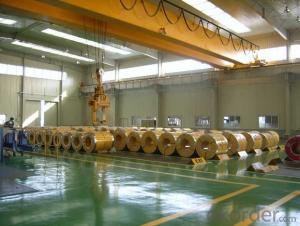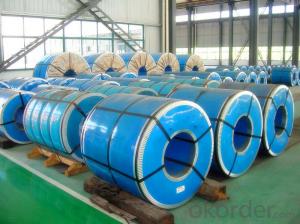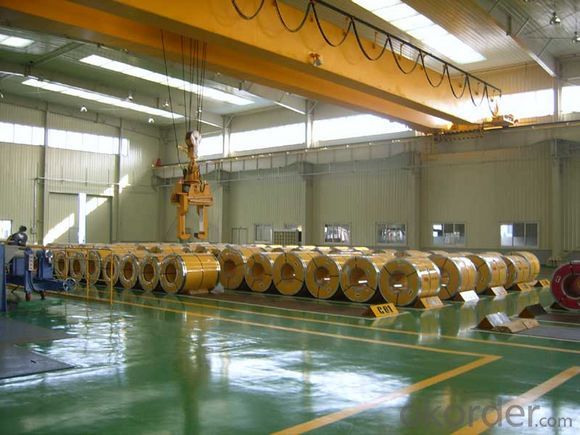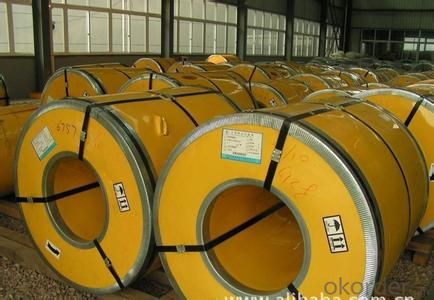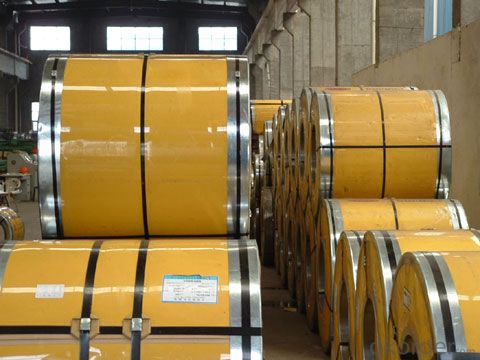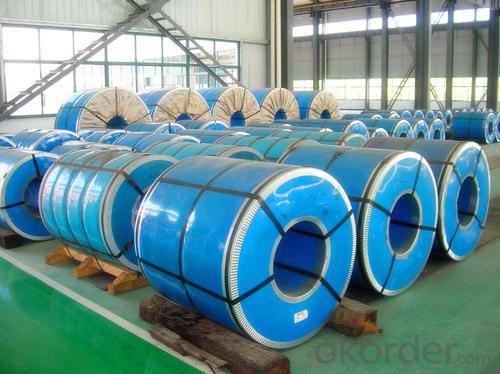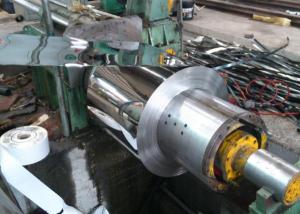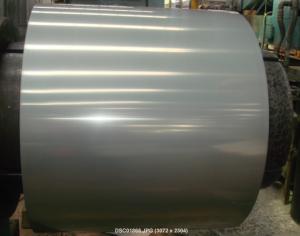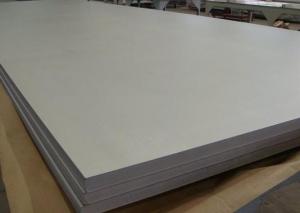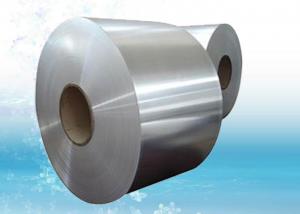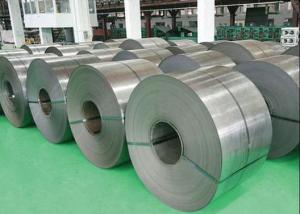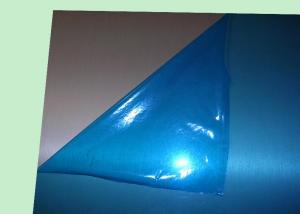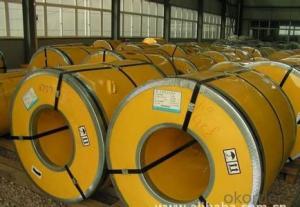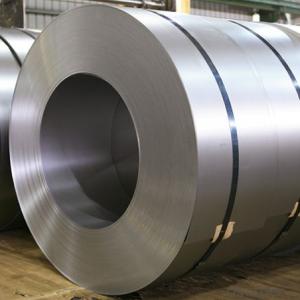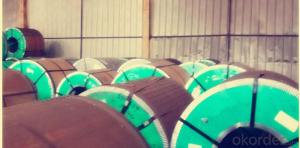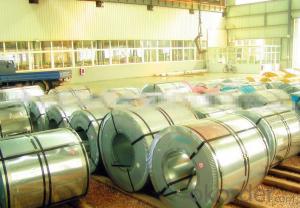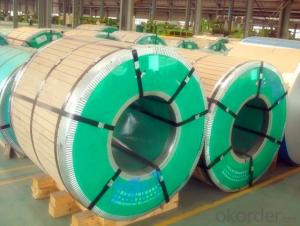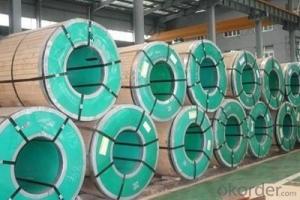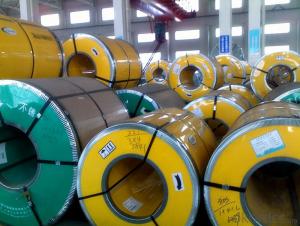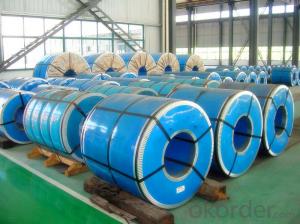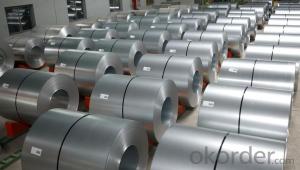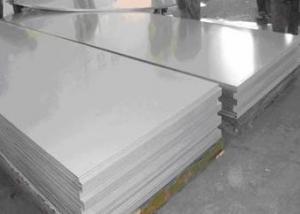Hot Rolled Stainless Steel Coil 304 No.1 Finish Narrow Strip
OKorder Service Pledge
OKorder Financial Service
You Might Also Like
Type | Hot Rolled Stainless Steel Coil 304 Narrow Strip |
Thickness | 2.5mm-4.0mm |
Width | 550mm, 650mm |
Length | according to weight |
Brand name | CNBM |
Standard | ASTM, AISI, DIN, GB, JIS etc |
Material | 304 |
Application | Foodstuff, Gas, metallurgy, biology, electron, chemical, petroleum, boiler, nuclear energy, Medical equipment, fertilizer etc |
Package | Standard export sea-worthy packing |
Delivery time | Within 15 days since getting the deposit or LC origin |
Surface | NO.1 |
Productivity | 20000 tons/month |
Hot Rolled Stainless Steel Coil 304 Chemical Composition:
(%):C=0.07, Mn=2.00, P=0.045, S=0.030, Si=0.075, Cr=17.5-19.5, Ni=8.0-10.5, N=0.10
Hot Rolled Stainless Steel Coil 304 Physical Properties
Tensile strength σb (MPa) ≥ 520
The conditions yield strength σ0.2 (MPa) ≥ 205,
Elongation δ5 (%) ≥ 40
Reduction of ψ (%) ≥ 50,
Hardness: ≤ 187
HB; ≤ 90
HRB; ≤ 200H
- Q: Can stainless steel strips be used in the semiconductor industry?
- Yes, stainless steel strips can be used in the semiconductor industry. Stainless steel strips are known for their excellent corrosion resistance and high temperature tolerance, making them suitable for various applications in the semiconductor industry, including equipment manufacturing, wafer fabrication, and cleanroom construction.
- Q: Are stainless steel strips suitable for HVAC systems?
- Yes, stainless steel strips are suitable for HVAC systems. Stainless steel is a corrosion-resistant material that can withstand the harsh environments and high temperatures commonly found in HVAC systems. It is durable, long-lasting, and provides excellent heat transfer properties. Stainless steel strips are often used for making ductwork, heat exchangers, and other components in HVAC systems due to their strength, resistance to corrosion, and ability to maintain cleanliness and hygiene. Additionally, stainless steel strips are easy to clean and maintain, making them a popular choice for HVAC applications.
- Q: Can 111 stainless steel strips be bent or formed without cracking?
- Yes, 111 stainless steel strips can be bent or formed without cracking. Stainless steel is known for its durability and flexibility, making it suitable for various bending and forming applications. However, it is essential to use the appropriate techniques, tools, and equipment to ensure smooth and crack-free bending or forming of the strips.
- Q: What is the density of stainless steel strips?
- The density of stainless steel strips can vary depending on the specific grade and composition of the stainless steel. However, on average, stainless steel strips have a density of approximately 7.9 grams per cubic centimeter (g/cm³). This density is relatively high compared to other materials, making stainless steel strips a durable and sturdy choice for various applications in industries such as construction, automotive, and manufacturing.
- Q: Are stainless steel strips resistant to chlorine corrosion?
- Yes, stainless steel strips are generally resistant to chlorine corrosion. Stainless steel is known for its high resistance to corrosion and staining, which makes it an ideal material for various applications that come into contact with chlorine, such as swimming pool equipment, water treatment plants, and chemical processing facilities. The addition of elements like chromium and nickel in stainless steel enhances its corrosion resistance, forming a passive oxide layer on the surface that protects the metal from the harmful effects of chlorine. However, it is important to note that the corrosion resistance of stainless steel can vary depending on the specific grade and composition of the alloy, as well as the concentration and temperature of the chlorine solution. Therefore, it is recommended to consult with a stainless steel expert or refer to the specific corrosion resistance charts provided by stainless steel manufacturers to ensure the suitability of stainless steel strips in a chlorine-rich environment.
- Q: Can stainless steel strips be used in the production of architectural façades?
- Yes, stainless steel strips can be used in the production of architectural façades. Stainless steel is a durable and corrosion-resistant material that can withstand various weather conditions, making it an ideal choice for façade applications. Additionally, stainless steel offers a sleek and modern aesthetic, making it popular in contemporary architectural designs.
- Q: What are the common weight tolerances for stainless steel strips?
- The common weight tolerances for stainless steel strips can vary depending on the specific grade and thickness of the strip. However, typical weight tolerances for stainless steel strips range from +/- 5% to +/- 10% of the specified weight.
- Q: What are the typical tolerance levels for stainless steel strips?
- The typical tolerance levels for stainless steel strips can vary depending on the specific industry and application. However, common tolerance ranges for thickness can be around +/- 0.001 to 0.005 inches, for width it can be +/- 0.010 to 0.020 inches, and for length it can be +/- 0.020 to 0.040 inches. These ranges may vary further based on the specific requirements and standards set by manufacturers and customers.
- Q: What are the physical properties of stainless steel strips?
- Stainless steel strips have several physical properties that make them highly versatile and widely used. These properties include high strength, corrosion resistance, durability, and heat resistance. They are also non-magnetic, making them suitable for applications where magnetism is undesirable. Additionally, stainless steel strips have excellent formability, allowing them to be easily shaped or bent without losing their strength.
- Q: Can stainless steel strips be used in the chemical manufacturing industry?
- Yes, stainless steel strips can be used in the chemical manufacturing industry. Stainless steel is highly corrosion resistant, making it suitable for handling various chemicals and corrosive substances. It also offers excellent strength and durability, ensuring a long service life in harsh chemical environments. Additionally, stainless steel can withstand high temperatures, making it ideal for use in chemical manufacturing processes that involve heat.
Send your message to us
Hot Rolled Stainless Steel Coil 304 No.1 Finish Narrow Strip
OKorder Service Pledge
OKorder Financial Service
Similar products
Hot products
Hot Searches
Related keywords
